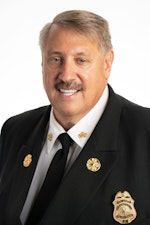My mom died recently after a long illness on a Sunday afternoon. It was May 23, 2010. Several weeks earlier was Mother's Day and in 20 minutes alone with her, I said everything I ever wanted to say to her, including how much I loved her and to thank her for everything she did for me. My mom almost died during childbirth because I was a breech baby.
My mom suffered terribly at the end, but she was surrounded by those who loved her and those she loved. My mom was very religious, loved God, and when she was healthy, she spent almost every day at the church, cleaning or doing whatever needed to be done. She never saw the bad in anyone, only the good. She did all she could for everyone in need. She said her prayers every night. If there is an express line to heaven, my mom was in it.
My mom got to live a full life of 88 years. She had an identical twin sister, was a mother, grandmother and great-grandmother. A first-generation American, she grew up speaking German because her parents had emigrated from Germany and settled in south St. Louis as many Germans did around the turn of the 19th century. The City of St. Louis had to eventually pass an ordinance mandating English be taught and used in the schools since in many schools everyone was speaking German. My mom loved to dance to German polkas with her twin sister and thought the sun would rise and set with her grandchildren.
The death of my mom was tragic for our family and especially for my father, since they were married for 62 years. They were together constantly and many nights he slept in a chair next to her bed in the hospital. But what our family went through is no different than what other families go through. Life and death are a part of our lives.
My mom's hospitalization and death showed me another side of what we do as firefighters. On many EMS calls, we deal with death. Many times, those deaths are sudden, unless someone has been ill for a while. As firefighters, we not only deal with the death of the person we were called for, but in many instances, we are also dealing with the family and other loved ones. What those family members and loved ones are going through is catastrophic and terrible. Unfortunately, some of those deaths we deal with are of children whose parents are also present.
At these scenes, I always thought I was sensitive and empathetic to the loved ones and family. But my mom's death has taken my awareness of being compassionate and sympathetic to another level. I saw this in the many weeks that she spent in the hospital leading up to her death. Some of the nurses were outstanding. Many showed compassion, empathy and genuine concern for not only my mother, but her family. Other nurses were less than stellar, showed no concern, acted as if they were going through the motions and I suspect were there only to collect a paycheck.
I know what we do can become routine. We deal with patients every day and if you work in a busy system, you probably deal with death almost every day. When you deal with these issues on a day-in-and-day-out basis, it can become a matter of routine. My point for this column is this: don't lose touch with the human side of what we do. What may be of a matter of routine for you may be one of the biggest and most disastrous events of someone else's life. I know we question many of the calls we go on and why people call 911. But interspersed among those calls are true emergencies where someone is suffering and family members are present who care about their loved one.
Show that you care and are sympathetic to their needs. Show that you have compassion and that any oath you took means something and was not just words. The application of the technical skills that we possess is just one facet of the job we do. The other piece of our job is to show we care. I have always said a smile and kind word with a patient can sometimes go further than the drug we are pushing. Push the wrong drug or dosage and they may not know it. Frown or be uncompassionate and they may call in a complaint on you, even though you pushed the correct drug and dosage.
Our jobs are not just technical. We are humans taking care of other humans. My mom was a good and wonderful person who taught me many things, including how to treat others. Even with her illness and death, I learned from her. Thanks, Mom, for everything. Until we meet again!
GARY LUDWIG, MS, EMT-P, a Firehouse® contributing editor, is a deputy fire chief with the Memphis, TN, Fire Department. He has 32 years of fire-rescue service experience. Ludwig is chairman of the EMS Section for the International Association of Fire Chiefs (IAFC), has a master's degree in business and management, and is a licensed paramedic. He is a frequent speaker at EMS and fire conferences nationally and internationally, and can be reached through his website at www.garyludwig.com.

Gary Ludwig
GARY LUDWIG has served in three fire departments over his career: St. Louis, Memphis, and Champaign, IL. His fire, EMS and rescue career spanned a total of 46 years, and he has been a paramedic for over 44 years. Ludwig served as president of the International Association of Fire Chiefs in 2019-20. He has a Master’s degree in Business and Management, has written over 500 articles for professional fire and EMS publications and is the author of seven books.
Connect with Gary
Email: [email protected]
Facebook: Gary Ludwig
Twitter: @ChiefGaryLudwig
Website: garyludwig.com





